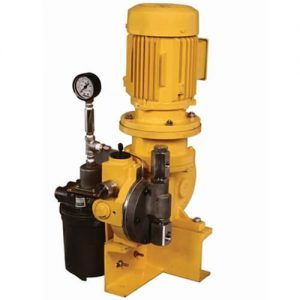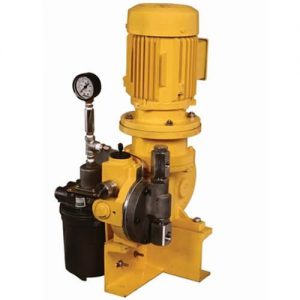
Dosing Pump Spares
Dosing Pump Spares: The Backbone of Efficient Pump Maintenance
In industries where accurate chemical dosing is critical like water treatment, food processing, pharmaceuticals, and chemical manufacturing dosing pumps are vital. But like any mechanical equipment, they face wear and tear over time. That’s where Dosing Pump Spares come into the picture.

Having the right dosing pump spares on hand ensures minimal downtime, uninterrupted operations, and long-term equipment health. In this guide, we will explore the importance of dosing pump spares, the role of dosing pump repair service, and how a dosing pump service contract can save your business time and money.
Read Also:
Dosing Pump Repair Service
Agitator for Water Treatment Plant
Stirrer: The Ultimate Mixing Tool
Why Dosing Pump Spares Matter
Dosing pump are replacement parts designed specifically for dosing pumps. These include diaphragms, valves, pistons, seals, o-rings, and more. Over time, these components degrade due to chemical exposure, pressure fluctuations, and continuous usage.
Benefits of using genuine dosing pump:
-
Minimized downtime: Quick replacement of faulty parts avoids prolonged halts in operations.
-
Increased pump lifespan: Regularly replacing worn-out parts ensures the pump remains in top condition.
-
Accurate dosing: Worn parts can lead to inconsistent dosing, affecting quality and compliance.
-
Cost-effective: Preventive maintenance using proper spares costs far less than a full pump replacement.
Common Types of Dosing Pump
1. Diaphragms
Used in diaphragm pumps, these flexible membranes are crucial for chemical dosing. Cracks or deformation can severely impact performance.

2. Valves (Suction & Discharge)
Valves control the direction of flow. Any blockage or leakage can affect dosing accuracy.
3. Seals & O-rings
These tiny components prevent leakage. Chemical exposure often causes them to degrade over time.
4. Pistons
Found in piston dosing pumps, they need to be checked regularly for corrosion and wear.
5. Gear Sets & Motors
Though not often replaced, gear systems and motors may require service or replacement after prolonged use.
Each of these dosing pump plays a vital role. Having them readily available can make all the difference during maintenance or emergency repair.
Dosing Pump Repair Service: Fast Solutions When Things Go Wrong
Even with regular maintenance, breakdowns can occur. This is where a professional dosing pump repair service becomes indispensable.
What does a dosing pump repair service include?
-
Full diagnostics and inspection
-
Replacement of damaged
-
Re-calibration of dosing levels
-
Performance testing
-
On-site or off-site repair, depending on urgency
A certified dosing pump repair service ensures your equipment is back in action quickly and reliably. It's crucial to work with experts who understand the specific needs of different pump brands and models.
Signs Your Pump Needs Repair or Spare Replacement
Before a pump fails completely, there are warning signs. Recognizing them early helps reduce costly downtime. Look out for:
-
Irregular dosing volume
-
Unusual noises during operation
-
Chemical leaks
-
Frequent shutdowns
-
Loss of pressure
Dosing Pump Service Contract: A Smart Preventive Strategy
Instead of waiting for problems to occur, many businesses now invest in a dosing pump service contract. This contract ensures your pumps are regularly maintained, repaired, and kept in optimal working condition.
Benefits of a dosing pump service contract:
-
Scheduled inspections: Ensures problems are caught before they become serious.
-
Priority service: Quick response during emergencies.
-
Discounted spares & labor: Many contracts offer better pricing on Dosing Pump Repair Service and repairs.
-
Documentation & reports: Track pump performance and maintenance history.
-
Extended pump life: With regular care, pumps last significantly longer.
Choosing the Right Supplier for Dosing Pump
With so many options in the market, selecting the right supplier for your Dosing Pump Repair Service is essential. Here's what to look for:
-
OEM or compatible spares: Always ensure spares meet manufacturer specifications.
-
Inventory availability: A supplier with a wide range of Dosing Pump Repair Service reduces waiting time.
-
Technical expertise: Choose suppliers who understand dosing systems and can recommend the right spares.
-
After-sales support: Responsive customer service makes all the difference during emergencies.
FAQs about Dosing Pump Spares
1. What are the most commonly replaced dosing pump?
The most common dosing pump include diaphragms, valves, seals, o-rings, and pistons. These parts are subject to regular wear due to chemical exposure and mechanical stress.
2. How often should I replace dosing pump?
It depends on the pump type, usage frequency, and chemical being dosed. However, a general rule is to inspect parts every 6 months and replace as needed. A dosing pump service contract often includes scheduled checks.
3. Can I perform dosing pump repairs in-house?
Minor repairs like seal or diaphragm replacement can be done in-house if you have trained staff. For complex issues, it's safer and more efficient to hire a professional dosing pump repair service.
4. What is included in a dosing pump service contract?
A dosing pump service contract typically includes periodic inspections, preventive maintenance, emergency repair service, discounted spare parts, and performance reports.
5. Are generic dosing pump reliable?
Generic spares may work, but OEM (Original Equipment Manufacturer) spares are recommended for best performance and compatibility. Low-quality generic spares can cause frequent breakdowns or reduce pump lifespan.
Our Blogs
- IoT Based Industrial Automation for Pump & Other Applications
- Dosing Pump Spares
- Dosing Pump Repair Service
- Agitator for Water Treatment Plant
- Stirrer: The Ultimate Mixing Tool
- Industrial Agitator: Mixer, Design, Machine, Manufacturer
- Image: Dosing Done Right - Customized Dosing Solutions for Precision Control
- High-Performance Motor Driven Systems for Diverse Applications
- Unlocking the Power of Chemical Dosing in Composite Manufacturing
- High-Efficiency Hydraulic Dosing Pumps for Seamless Fluid Control
- Dosing Skids - Streamlining Chemical Dosing Operations
- Monoblock Pumps - Reliable and Efficient Fluid Handling Solutions
- Dosing Skids - Streamlining Chemical Dosing Operations
- IBC Stirrer - Efficient Mixing for Intermediate Bulk Containers
- IBC Agitator - Efficient Mixing for Intermediate Bulk Containers
- Chemical Dosing Skid - Streamlining Your Chemical Dosing Operations
- Actuated Dosing Pumps - Precision and Reliability
- Mechanical Dosing Pump - Precision and Reliability
- Automating Precision: Exploring Automatic Chemical Dosing Systems
- Precision Dosing with Our Mechanical Actuated Dosing Pumps
- Mastering Mixing: Introducing Our Powerful Disperser Agitator
- Customized Dosing Solutions: Tailored Precision for Your Needs
- Electric Dosing Pump
- Customized Dosing Manufacturer: Tailored Solutions for Precision Dosing
- Flash Mixer: The Versatile Solution for Rapid Mixing
- Precision Pumping with Sarayu Engineering's Motor Driven Diaphragm Pumps
- Precision Dosing, Simplified: The Benefits of Chemical Dosing Skids
- Keeping it Moving: Unveiling the Power of IBC Agitators for Efficient Mixing
- Guardians Against Flames: A Comprehensive Guide to Fire Fighting Pumps
- Powering Up with Air: Exploring the Advantages of Pneumatic Agitators
- Keeping it Stirred: Unveiling the Power of Industrial Agitators in Mixing Applications
- The Heart of Reliable Dosing: Exploring the Advantages of Diaphragm Pumps
- Mastering Metering: Unveiling the Advantages of Dosing Skids for Precise Chemical Injection
- 2024 Guide to Dosing Pumps: Precision in Fluid Management
- The Versatility of Monoblock Pumps
- The Advantages of Automatic Water Dosing Systems
- The Importance of Flocculators in Water Treatment
- The Role of Industrial Agitators in Mixing Applications
- Demystifying Hydraulic Dosing Pumps: A Comprehensive Guide
- Unlocking Efficiency: The Role of Industrial Pumps in Streamlining Operations
- Chemical Pumps manufacturer in Gujarat
- Stirrer manufacturer in Gujarat
- Industrial Agitator manufacturer in Gujarat
- Industrial Centrifugal Pumps manufacturer in Gujarat
- Industrial Centrifugal Pumps supplier in Gujarat
- AODD Pumps manufacturer in Gujarat
- AODD Pumps supplier in Gujarat
- RO Skid manufacturer in Gujarat
- RO Skid supplier in Gujarat
- Dosing Systems manufacturer in Gujarat
- Dosing Systems supplier in Gujarat
- Chemical Dosing Pumps manufacturer in Gujarat
- Chemical Dosing Pumps supplier in Gujarat
- Mechanical Dosing Pumps manufacturer in Gujarat
- Mechanical Dosing Pumps supplier in Gujarat
- Hydraulic Dosing Pumps manufacturer in Gujarat
- Hydraulic Dosing Pumps supplier in Gujarat
- Electronic Dosing Pumps manufacturer in Gujarat
- Chemical Pumps manufacturer in india
- Stirrer manufacturer in india
- Electronic Dosing Pumps supplier in Gujarat
- Industrial Agitator manufacturer in india
- Mechanical Dosing Pumps manufacturer in India
- Industrial Centrifugal Pumps manufacturer in India
- Industrial Centrifugal Pumps supplier in India
- AODD Pumps manufacturer in India
- AODD Pumps supplier in India
- RO Skid manufacturer
- RO Skid supplier
- Dosing Systems manufacturer in India
- Dosing Systems supplier in India
- Chemical Dosing Pumps manufacturer in India
- Chemical Dosing Pumps supplier in India
- Mechanical Dosing Pumps supplier in India
- Hydraulic Dosing Pumps manufacturer in India
- Hydraulic Dosing Pumps supplier in India
- Electronic Dosing Pumps manufacturer in India
- Electronic Dosing Pumps supplier in India
